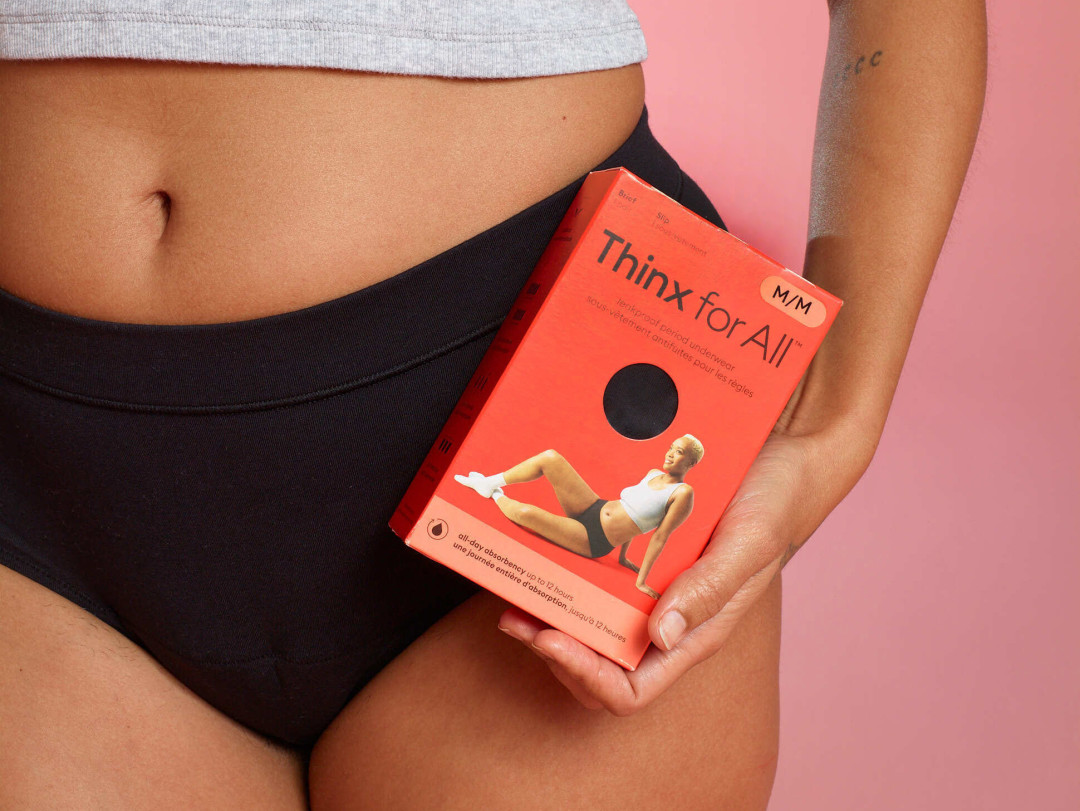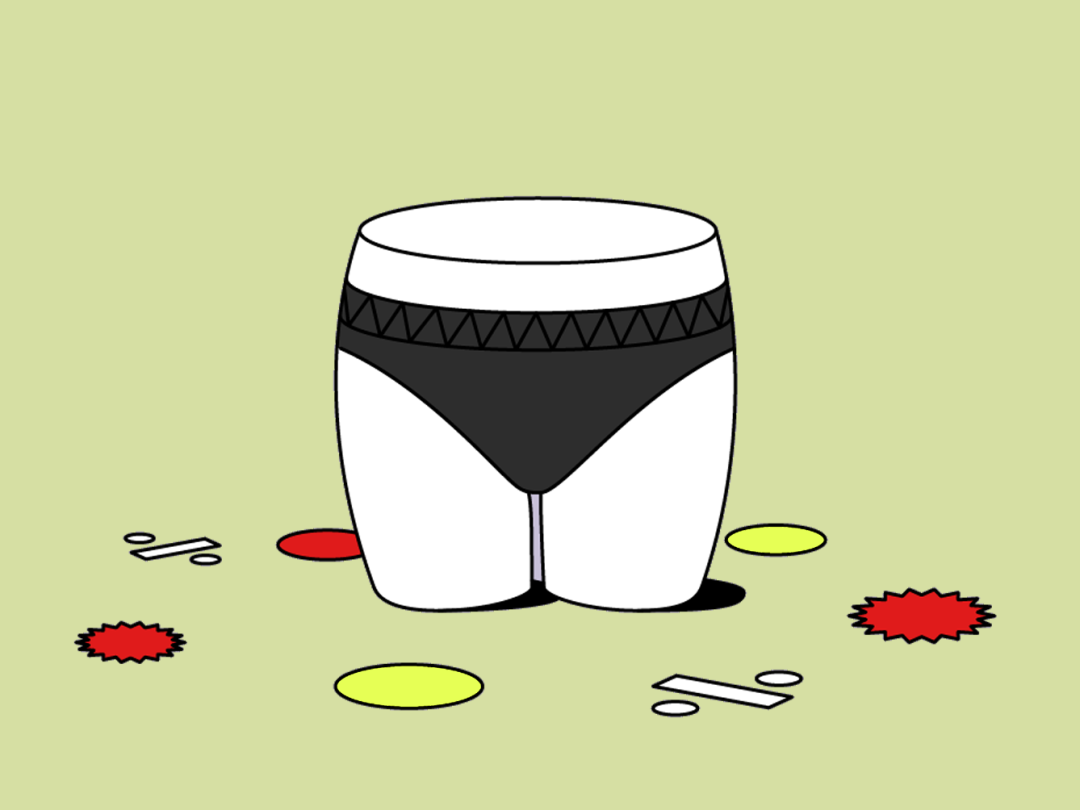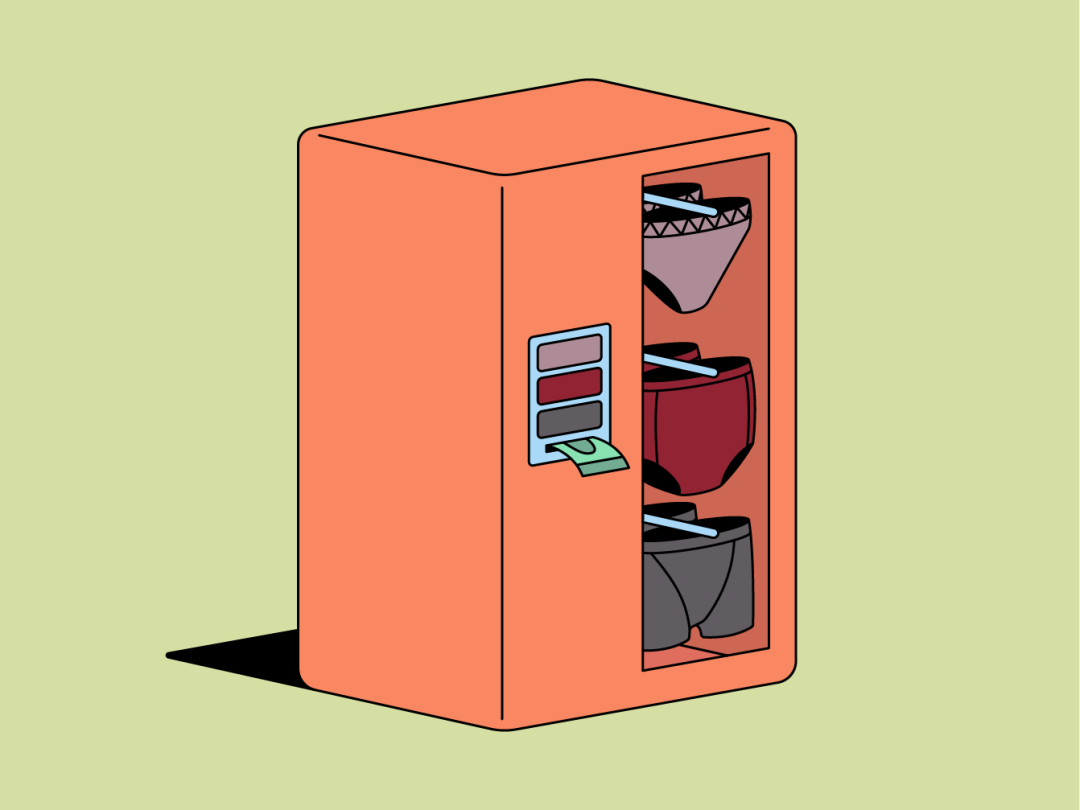#explainer
For People With Periods — Who May Not Be Women
odds & ends
·5 min read

by Toni Brannagan | 08/23/2018
Welcome to the next installment in our Pride series! You can read the others here and here. Each month we’re exploring stories and insights about people who identify on the LGBTQ+ spectrum. Why? Because we want to acknowledge the different experiences within our diverse community — and because ~Pride~ shouldn’t be limited to just one month!
While we’re committed to smashing the stigma surrounding menstruation all day, every day, it’s important to acknowledge that being loud and #periodproud may not be realistic — or safe — for everyone.
Many people have less than positive feelings about their period, but imagine how these feelings may intensify if you don’t identify as a woman. For trans people with periods, menstruating can exacerbate dysphoria, as well as incite a number of complicated emotions. In a world where periods and menstruation are still almost exclusively tied to women’s health, it can be difficult to find the resources you need, or even feel comfortable enough to discuss what you’re going through.
After chatting with a few trans people about navigating their periods, both emotionally and in public, here are four main takeaways that I hope can help you period better if you are trans, and educate allies further about the trans experience:
1. Create a game plan
Being prepared can make that time of the month much easier. “Though thinking about it or acknowledging it can be dysphoric, being on top of your cycle can relieve so much stress,” pointed out Davis, a 28-year-old woodworker. “It often caught me off-guard because I hated to think about it.”
Using a period tracking app that notifies you when your period is likely to begin is useful for navigating irregular periods and avoiding accidental leaks, as well as reminding you to purchase products before you actually need to use them. The period tracking app Clue has collected tips for using their app as a trans person here.
2. Plan ahead
Besides having period products ready, it could also be useful to identify where you can change regularly, day-to-day. Davis no longer menstruates, but he used to ask in advance whether certain public bathrooms were gendered or not, and for friends to accompany him if they were.
If you take testosterone but still sometimes spot (or are prone to missing a shot here and there), stashing or carrying around liners might seem annoying, but definitely beats leaks or being stranded without products.
3. Use period products that last all day
If you know that you may not have access to a safe place to change, using a product that can last the whole day can really help. Marika, a 29-year-old film colorist, acknowledges that menstrual cups aren’t everyone’s cup of tea, but they could put one in the morning, and forget about it until they came home at night.
Depending on your flow, THINX can also be worn throughout the day with or without backup. Our Boyshort was created after hearing about the needs within our trans community, and designed with consideration to our trans male and gender-neutral audiences.
4. Make time for self-care
Even if you have everything figured out logistically, having a period while experiencing dysphoria can still be emotionally traumatizing.
It didn’t diminish their dysphoria, but when they were bleeding irregularly due to testosterone, Marika found that acknowledging “trans folks have a really unique perspective in life and that's nothing to feel upset about” helped. “Trans bodies are so unique and special.”
Noah, a 22-year-old assistant baker, suggests retail therapy if it’s within your means: “Do what you can to feel as manly as possible. You could wear your best, most stealthiest outfit or get yourself a haircut. Even buying a new cologne or a new (or first) binder can help!”
Why *people* with periods?
Since THINX adopted inclusive language a few years ago, we have received a lot of *colorful* feedback. Specifically, about how we’ve evolved to say “people with periods” instead of “women with periods.”
The fact of the matter is, people do get periods. To be as inclusive as possible, we lead with language that speaks to as many as possible.
Another myth that is commonly perpetuated by feminists who oppose trans rights is that biological sex cannot be argued with, even if you respect gender identity. You’re either born with XX or XY chromosomes and that’s that. However, multiple studies have proven that sex is far more complex than just a binary.
Hiding bigotry behind the mask of “science” is not unique to our history, including to the beginning of gendered bathrooms themselves. (Come on, you *know* outhouses during The Revolutionary War didn’t have little stickmen and stickwomen on them.)
“Separate but equal” bathrooms were only introduced in the late 19th century to reinforce the idea that women, the ~inherently weaker~ sex, needed a special place to themselves for safety. This ideology continues today, with the harmful argument that micromanaging where trans people pee “protects” women. In reality, trans people need the *most* protection in public spaces.
So, what are some things allies can do to fight for people with periods who aren’t women, and trans people in general? To begin with, support gender-neutral restrooms.
“Advocate at your job, your favorite bar or restaurants, anywhere you see only gendered spaces,” suggests Davis. “It gives trans people a safer space in which to go to the bathroom and deal with periods. Because everyone deserves to pee (or deal with whatever bodily functions they may have) in peace.”
If you are in a space with gendered bathrooms, you can also offer to accompany your friends if that would make them feel more comfortable. Another important thing to do as cisgender people is use our privilege! If you are in a bathroom (or any other public place), and witness someone harassing another person about the space they are taking up, stand up for them verbally, or, at least, make sure they are safe before you leave.
In support of the Employment Non-Discrimination Act of 1994, which addresses refusing to hire workers based on sexual orientation or gender identity, Coretta Scott King said “I don't believe you can stand for freedom for one group of people and deny it to others.” The idea that you cannot fight for feminism and defend trans rights at the same time is patently false and unnecessarily divisive. Hopefully, this movement can continue growing and educating each all of us on ways to be more inclusive towards *every body*.
Are you a trans person who would like to share your story with us? Any ideas about how allies can do better to support the trans community? Drop us a comment below.
Toni Brannagan is a writer and was the former Copy and Content Manager at Thinx.
by Toni Brannagan


